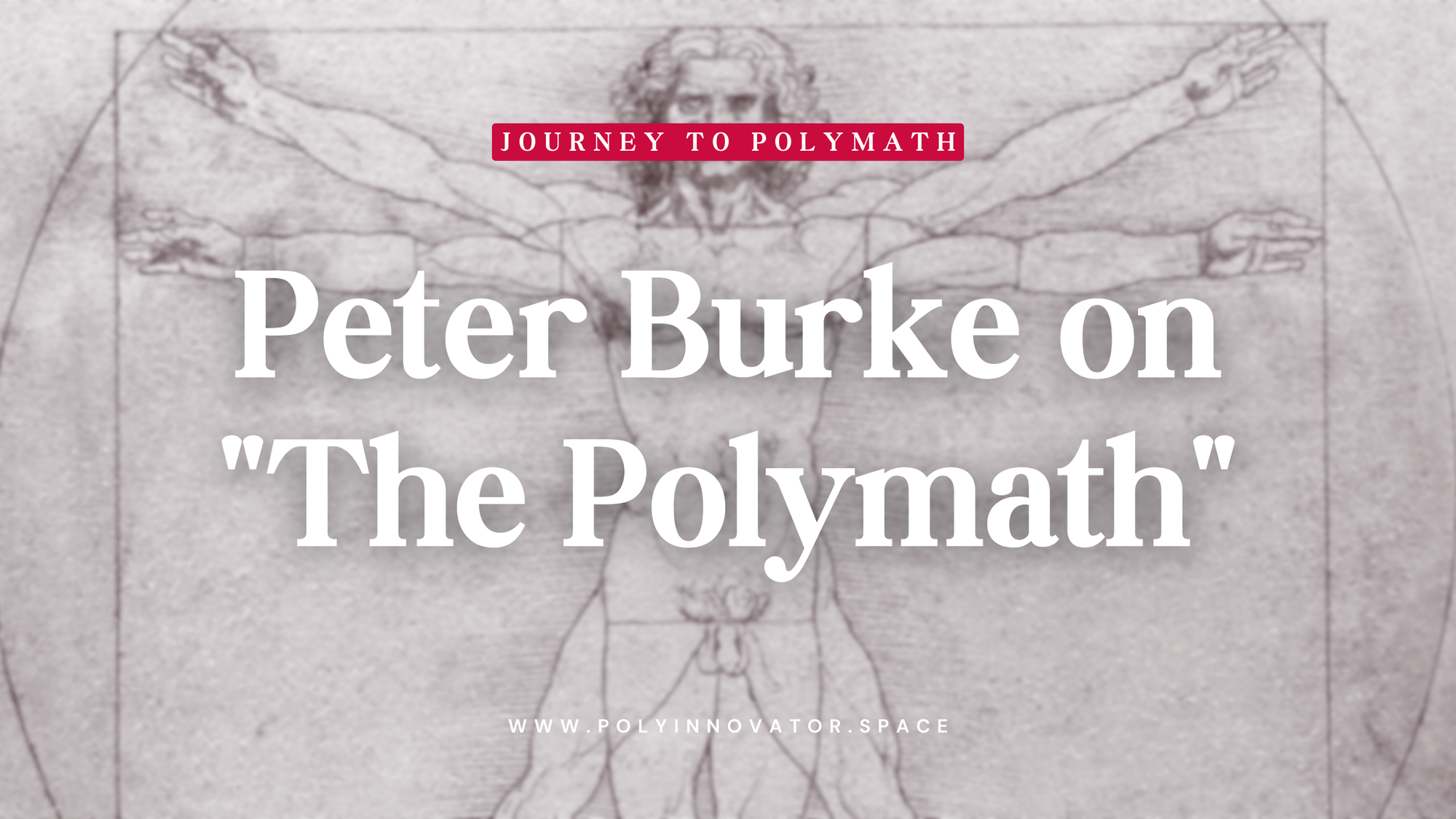Now this article is a bit of a highlight of Peter Burke, and his book called The Polymath. Something very on point for this site and brand obviously. I really need to interview him at some point, not only about the book, but on his life too. As he is certainly a polymath.
His video he had made here talks about the concept and his writing.
Check out the related video to this post:
"A polymath, is a many sided intellectual"
Something that Burke and a lot of the other thought leaders in polymathy agree on, is that as long as you have 3 areas of expertise. Then you qualify as a polymath. Keep in mind that most also state that a polymath has a deep curiosity as well!
Aspects of "ManySidedness"
- Ability to learn fast.
- The need for a stronger than average imagination.
- Needs to have a good memory.
Some people view polymaths as absent minded people, odd, or as if they were just dreaming. Burke says in the video. Perhaps this due to the flightiness of some polymathic people, and the higher rate of change that people in this lifestyle embody.
Another reason for a lack of understanding of polymaths, is that there is often a lack of a "niche" for them. It isn't so much that some of the polymathic people are against niches, but just that there was no such descriptor for them.
The Paradox:
"In the age of increasing specialization, polymaths are more and more necessary. Since they can see the big picture. But at the same time it is more necessary, it is more difficult to find them."
There is a lacking of a "social niche" for polymathic individuals. Thus leaving people of the generalist variety out of a social tribe home. (Note: this is why I've tried a number of times to create a polymath social network, or PolyInnovator Construct).
Due to this society misunderstanding, it creates this inherent challenge for polymaths to thrive. As we are simply trying to survive, as we swim upstream.
Interdisciplinary Teams = The "Collective Polymath"
A substitution in the cases where individual polymaths are not being used fully.
There could be a situation where you have a collection of multiple specialists, that form a polymathic group. I also want to note that this compounds in a few ways.
The first is that of individuals that are specialists in a group. Equaling basically one polymath of skills.
The second is a group of specialists, and one generalist (polymath). Which compounds the transcontextual thinking between people.
The next interdisciplinary team group is that of multiple generalists and polymaths. Where many of them might overlap, which is helpful because each person will still have their individual views of that area of knowledge.
These are the various manysidedness groups.
![Official Website for Dustin Miller PolyInnovator [LLC]](https://www.polyinnovator.space/content/images/2025/03/polyinnovator-logo-2024.png)











